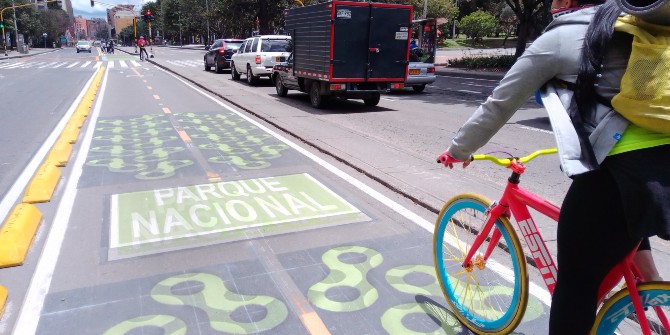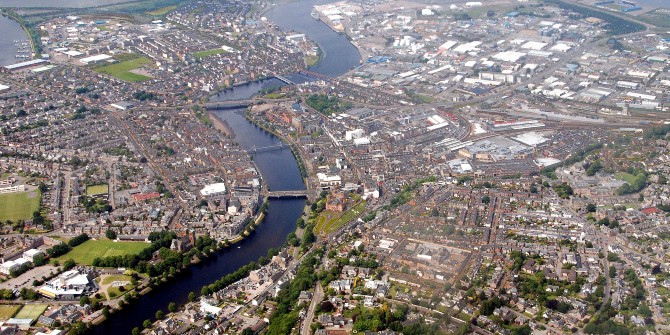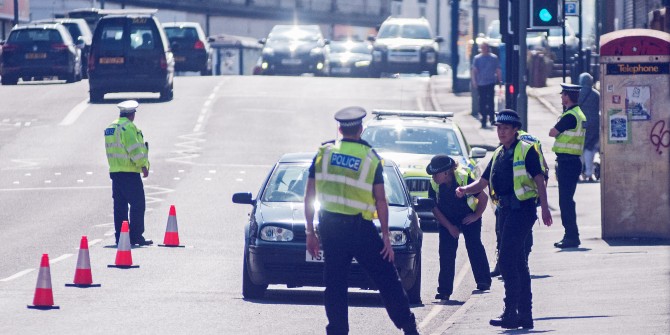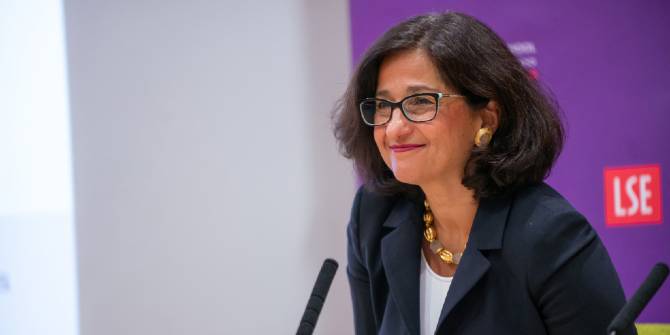Cities with devolved powers can react more quickly to the pandemic. But many don’t have the control they need to respond to shocks. Astrid R.N. Haas and Shahrukh Wani (International Growth Centre) argue that a reluctance by central governments to devolve power is holding them back.
COVID-19, like every single pandemic in the last 30 years, started in a city and spread through them. The core benefit of cities — as an enabler of proximity — is also their biggest liability. This is exacerbated when infrastructure and services are scarce. Across sub-Saharan Africa, only a quarter of people have access to necessary handwashing facilities, including soap and water. More than a third of Indian urbanites are packed into a single room or a house without a roof.
Yet some cities were better prepared to respond to this pandemic than even their own national governments. In Colombia, where city leaders have sufficient power to make decisions, many acted quickly and have been able to tailor policy decisions to the situation at hand. Medellín’s mayor began preparing for the virus in late January, far before the national government. Bogotá’s mayor created an 84 km emergency bike network to help essential workers get around safely.

A defining difference in how well cities are responding to COVID-19 is whether city governments actually have the power to respond. Many cities, particularly in developing countries, don’t because national governments have often been reluctant to devolve power to them. This may be for a number of reasons such as politics (cities can be opposition strongholds) — or perhaps due to economics (they are important sources of tax revenue). Yet cities are complex systems, and they need context-specific policies to work effectively.
This reluctance to devolve power affects how well cities can be managed: given the complexity of urban systems, cities need context-specific policies to work effectively. The pandemic is a case in point: the initial response across the globe was to impose blanket national-level lockdowns. However, there is increasing evidence that they are inefficient and economically very costly. Instead, localised containment measures that can be implemented and lifted by responsive authorities are proving to be more flexible, efficient, and effective.
But localised containment measures require local leaders who to have adequate control. In Britain, the ongoing stand-off between the national government and the mayor of Greater Manchester is a stark example of how the central government’s desire to impose local containment measures can fail without local leaders willing to lend it legitimacy. As our LSE colleague, Tony Travers, said: “There is a sense that people in Greater Manchester are having things done to them by a distant government.” This might have been avoided if the Mayor was given more control over the city’s pandemic response and resource-raising powers.
A defining difference in how well cities are responding to COVID-19 is whether city governments actually have the power to respond.
For many countries, the power over cities may have been devolved on paper, but very rarely in practice. Some of this is historical: many cities in developing countries inherited centralised urban governance structures and laws from their colonial pasts. These are ill-suited to their current needs. For example, Britain’s Town and Country Planning Acts still cast a long shadow over many African and South Asian cities in the form of stringent height regulations and large, pre-defined plot sizes for land. This encourages sprawling, low-density cities where people struggle to travel between their homes and workplaces.
Reluctance to devolve power has also at times resulted in incomplete and inconsistent outcomes. Cities are often only given partial control over urban policies or have their administrative jurisdiction siloed. In Karachi, Pakistan, the mayor barely has jurisdiction over a third of the city. The rest is split between provincial and federal governments, while three different political parties control each tier.
National governments can and should change this. Across history and across the globe, cities have given individuals the quickest route from poverty to prosperity: in Africa, one can earn as much as 23% more in cities than in rural areas. Cities provide opportunities that attract people and create ‘agglomeration’ economies that cluster people and businesses together, which is attractive to the private sector. The outcomes of this proximity can be innovation, economic growth, and development.
But not all cities lead to this outcome: it is only well-managed cities. This requires giving cities control over key areas that shape the path of urbanisation. At a city-level, all these policy areas, such has housing, transport, and planning, complement each other and require context-specific approaches. For example, new transport investments need to consider where people live and work to be most effective.
Devolving control over policy areas also needs to be coupled with increasing the ability of city leaders to raise their own revenues. This is not only important to allow them to deliver local services and infrastructure effectively, it also reduces the burden on national treasuries. Perhaps most importantly, it increases the accountability of city leadership to their citizens.
In 1960, no low-income country had more than one-third of its population living in its cities: now nearly 40% of them do. This trend is projected to continue well into this century, with Africa and South Asia urbanising rapidly. Furthermore, as more people are pushed into poverty due to the pandemic, we are likely to see more rapid urbanisation rates on these continents, as people move towards cities looking for opportunities.
Cities need to not only meet the expectations of the current citizenry, they also need to plan for the people to come. As shocks — health, climate, and others — are likely to increase, city leaders need the power to prepare and respond. Luckily for Bogotá, their mayor has this control and is now planning to add 280 additional kilometres of bike lanes, paving the way for a more resilient city. Other cities in rapidly urbanising countries need more of this local control as well.
This post represents the views of the authors and not those of the COVID-19 blog, nor LSE.





